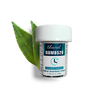Most of you reading this are likely to have some Aloe vera laying around the house for when someone gets burnt from a little too much sun. Aloe vera is one of the most well-known and effective treatments to soothe the pain and discomfort that sunburn can cause. You might, however, be surprised at just how many other ways this gel can be used.
1. Treats Burns
Let’s start with the most well-known use of Aloe vera. When applied to either sunburn or a standard skin burn, Aloe offers several benefits.
First off, anyone who has used Aloe vera on sunburn before knows of the almost instant cooling effect that the gel can have on burned skin. This can soothe the lingering hot and burning feelings associated with burned skin.
Second, the gel moisturizes the skin. This not only reduces the discomfort of the dried-out skin but also speeds up the skin’s healing process. Aloe vera also increases the production of the protein collagen which makes up about 75% of our skin. By producing more collagen, the new skin can form faster and heal the damaged area.
Finally, the plant contains anti-inflammatory compounds that reduce the inflammation at the site of the burn. This not only speeds up healing but also decreases pain.
2. Moisturizes
Aloe contains compounds that help the skin to attract moisture, as well as, form a protective barrier on the skin’s surface to prevent the loss of moisture. This results in an overall improvement of the skin’s hydration. What’s especially appealing about the use of Aloe as a facial moisturizer is that, unlike many other moisturizers, it doesn’t have a clogging effect on the pores. This can reduce the chance of acne breakouts. The moisturizing and soothing properties of Aloe also make it useful for treating skin disorders like dermatitis and psoriasis.
3. Fights Acne
Aloe vera contains a natural supply of salicylic acid, one of the most common and effective acne treatments in the cosmetic industry. It also contains additional compounds that have antibacterial, cleansing, anti-inflammatory, and moisturizing effects on the skin.
One of the main causes of acne is when bacteria and oils get trapped in the pores of the skin. By removing these and other irritants from the skin, you greatly reduce the chance of breakouts.
Another common cause of acne is an imbalance of your skin’s natural oils. Although it’s true that very oily skin can cause acne to form, so can very dry skin. When the skin becomes overly dry, the body cranks up its production of the oil sebum. This excessive production of the oil can cause it to build up on the skin and cause blemishes to form. The moisturizing compounds in Aloe vera ensure that your skin is adequately hydrated without clogging your pores.
Finally, the plant’s content of zinc has a sort of toning effect on the skin. It tightens up the pores which reduce not only their visibility but also the amount of sebum that they secrete onto the skin. This can be particularly useful for those who suffer from a very oily complexion.
4. Firms Skin and Reduces Wrinkles
Aloe vera has a very effective mixture of compounds for fending off the signs of aging. One of the most useful ways that it benefits the skin is by increasing the skin’s production of the proteins collagen and elastin. These proteins are responsible for maintaining the skin’s shape and elasticity. A sugar in aloe called glucomannan and a plant growth hormone called gibberellin cause our skin cells to produce more of these proteins than we normally would.
If our levels of collagen begin to fall, as they do when we age, our skin begins to lose its shape and become loose. This is the major cause of the formation of wrinkles and fine lines. By increasing our body’s production of these critical proteins, we can maintain and even restore that firm and youthful look that everyone aspires for!
The plant is also rich in antioxidants, another critical ingredient in the recipe for youthful skin. Antioxidants remove free radicals from the skin. These free radicals can cause our skin to prematurely age and can even cause skin cancer. By removing them, we can not only improve our skin’s appearance, but also its health.
5. Heals Wounds
As we mentioned before, Aloe Vera has compounds that increase the body’s production of collagen and elastin. Since these proteins make up such a large percentage of our skin, they also play an important role in the healing of wounds. Increasing the body’s supply of these proteins allows new skin to form more quickly over damaged areas. The presence of anti-inflammatory and antibacterial compounds in Aloe Vera also help to speed up recovery and fend off infection.
6. Lightens Skin
Aloe vera also contains compounds that can reduce hyperpigmentation or dark spots. These can have various causes such as too much sun exposure or result from the scarring of acne. Dark spots are caused by an overproduction of melanin. Melanin is what’s responsible for the color in our eyes, hair, and skin. When part of the skin gets damaged, an enzyme called tyrosinase can deposit too much melanin there. This excessive melanin is responsible for the darker pigment or “hyperpigmentation” of the skin. By interfering with that enzyme, Aloe vera has been shown to be capable of treating existing dark spots, as well as, preventing new ones from forming!












